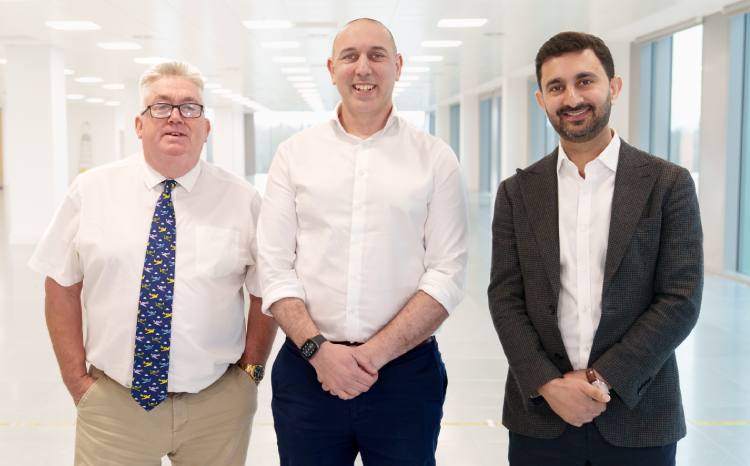Push me, pull you
- 23 May 2013

Justin Graham does not claim to be an expert on healthcare IT and informatics in England. Yet it transpires that the National Programme for IT in the NHS didn’t just make headlines on this side of the Atlantic.
It generated column inches in the US as well, and Dr Graham has developed a tentative theory to explain the programme’s failure.
“I can’t help but wonder if one of the reasons it had so much trouble was the lack of clinician leaders at the local level who would champion the project and just be focused on making it work,” he ponders. “I think something that complex needs strong clinical leadership at every level.”
From Kaiser to NorthBay
Dr Graham speaks from a position of significant experience. Since 2010, he has been the chief medical information officer of NorthBay Healthcare, which runs two hospitals in the Solano County area of California (located about halfway between San Francisco and Sacramento).
But he previously served as lead physician content designer for Kaiser Permanente’s national implementation of a inpatient electronic health record – a project which he points out was similar in size and scope to NPfIT. It differed in one key aspect: it was a tremendously successful roll-out.
“Kaiser’s approach was to have physicians step up and take ownership of how the system was going to drive clinical practice, working very closely with their non-physician clinical counterparts,” remembers Dr Graham.
It is the same approach being taken by his current employer. For Dr Graham is not NorthBay’s only clinical leader in IT. He is partnered by Ed Ballerini, the organisation’s designated chief nursing information officer.
Doctors and nurses
Ballerini says it was when the organisation implemented its computerised provider order entry module that the value of the CMIO/CNIO partnership became crystal clear.
“The physicians are telling us the orders they want to put into place for the patient, but the nurses are the ones who are implementing those orders,” he points out.
“I think at times Justin and I keep each other honest to the workflow challenges that we have in our own respective roles. Where I say: ‘let’s just do it this way’, Justin says: ‘well, that won’t work for the physicians’ workflow’, and I think vice versa.”
Dr Graham agrees. “It’s entirely possible that I may come up with a couple ways to tune the system so that it makes our physicians’ lives much more efficient, but then I’m not realising the implications are that the nurses have to do significantly more work.
“Also, like it or not, there are different cultural castes in healthcare,” he continues. “I think physicians are very reluctant to take leadership from anyone but another physician – I don’t say I agree with that, but that’s just the nature of the culture.
“But similarly, I would never pretend to really be a member of the nursing culture or be able to lead at that level in any more than a superficial way. Having a partner deeply tied to the nursing culture and nursing practice allows me to focus my attention on leading our physicians.”
Learning from academia
The two colleagues may come from different staff groups, but there are a number of similarities between them. One of the most striking is that their interest in informatics extends to the academic: both are holders of master’s degrees in the field.
Dr Graham’s was gained at Stanford, at the same time as undertaking his medical studies. “This is in the mid-90s here in the San Francisco Bay area, where the internet was taking off and there was a tremendous promise of information technology revolutionising every industry,” he explains.
“You find yourself surrounded by a lot of early adopters here, and a lot of people using cutting edge technology in other areas and you can’t help but wonder when it’s going to be applied to healthcare!
“So I started learning more and more from others in the informatics field; learning about what had gone before. There’s a long and rich history of academic informatics in this country, at Stanford, in Utah, in Indiana, at Duke, at Harvard, and I started learning quite a bit about the academic background. And I knew I wanted to be part of it.”
For Ballerini, it was frustration with the realities of clinical practice which led him to informatics. “I spent the early years of my career in the emergency department, and there was continuous frustration among all the care providers there about how the paper processes were inefficient, things got lost, it was hard to integrate information across multiple disciplines.
“I ultimately became the nursing champion for the integration of the EMR across the entire system, and then proceeded down the road of really focusing my attention on informatics. I got my master’s in healthcare informatics to facilitate my knowledge and help me transition more into that being my primary role.”
Keeping focus
Indeed, Ballerini now focuses solely on healthcare informatics. “The challenge of not having it as your dedicated role is you’re torn between different priorities,” he argues. “Having someone who’s just focused on informatics you have more of a system-wide thinking – what’s going to be best for the organisation rather than a more departmental-based what is going to be best for me and my role.”
Dr Graham retains some clinical practice – about 10% of his time, he estimates – and while he feels that is important, he also feels that it is impossible to give equal attention to both roles. “Both are too demanding. You can’t do 50% of one and 50% of the other.”
But he is 100% certain that clinical leadership in informatics is needed. “At the end of the day, these are clinical tools that are used by clinicians to provide care to patients. If the end goals in implementing these systems are to do better billing, then I guess you need a finance person in charge.
“But if your end goal in implementing these systems is to deliver better care, then you need somebody who understands how people deliver care. You need clinical leadership.”




